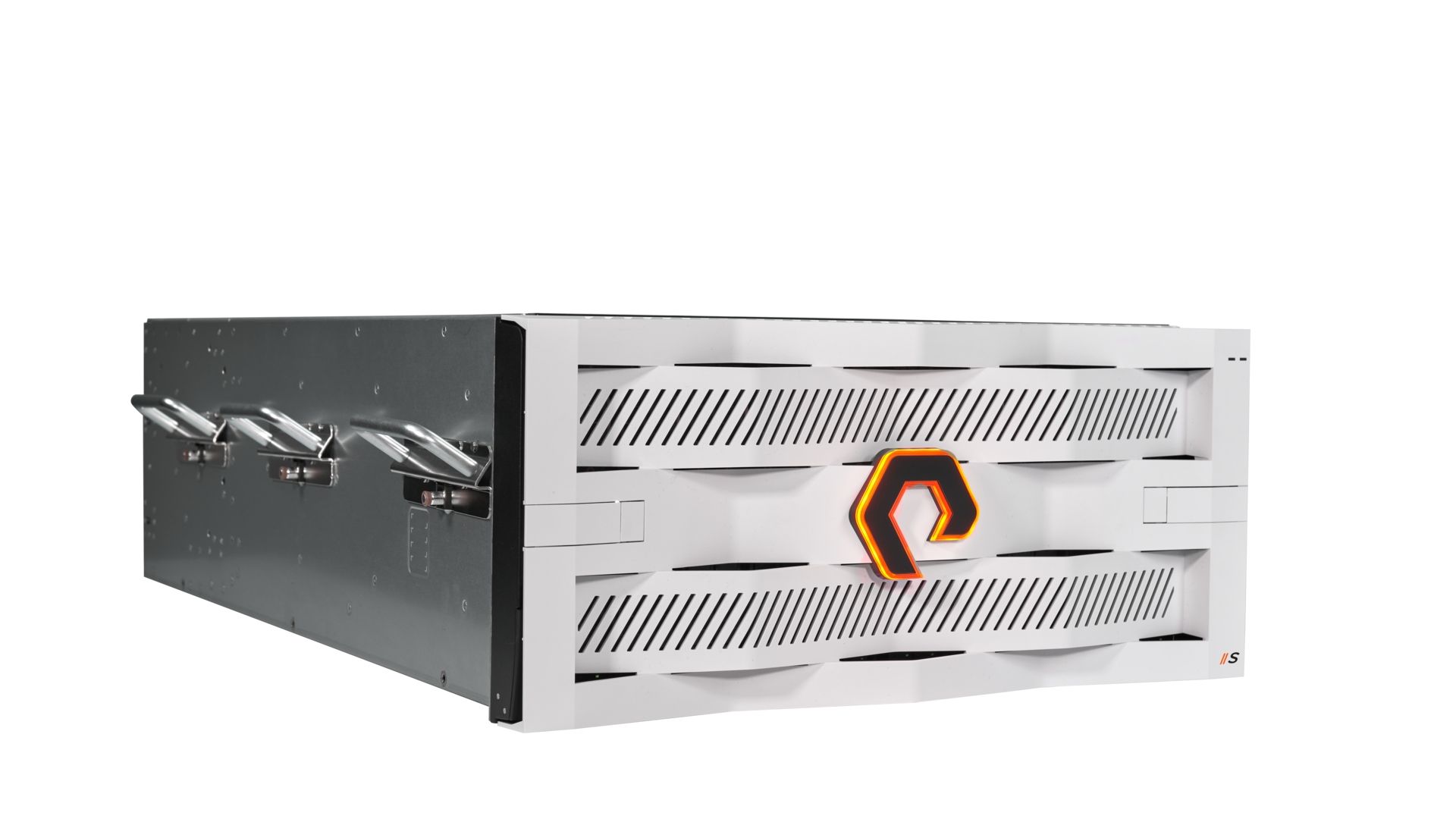Pure Storage announced that its FlashBlade//S500 has achieved the STAC-M3 Benchmark, an industry standard for tick-analytics benchmarks, specifically designed for database software/hardware stacks managing large time series of market data.
Test highlights:
The benchmarked system featured FlashBlade//S500, a purpose-built, all-QLC flash, unified fast file and object (UFFO) storage platform. 13 of 17 STAC-M3 Antuco (baseline) mean-response time benchmarks witnessed improvements while 17 of 24 STAC-M3 Kanaga (scaling) mean-response time benchmarks exhibited enhancements. Additionally, when compared to a cloud-based solution, Pure Storage FlashBlade//S500 outperformed in 9 of 17 Antuco benchmarks and 12 of 24 Kanaga benchmarks, showcasing significant speed advantages.
These results validate the FlashBlade//S500 series’ performance. FlashBlade is designed to deliver exceptional performance, throughput, and continuous uptime — critical requirements for data scientists and quantitative analysts running multi-threaded, time-series workloads. The platform enables firms to run complex queries across data sets of any scale with maximum throughput and minimum latency. As workloads increased in volume and thread count, Pure Storage FlashBlade//S500 demonstrated the ability to handle highly parallel workloads efficiently. The architecture allowed for seamless scalability, crucial for the demanding requirements of quant and high-frequency trading.
Commenting on the results, Jack Gidding, CEO of STAC, said “We are pleased to welcome Pure Storage to the ranks of technology providers who submit solutions for independent testing against the customer-developed STAC Benchmark standards. Financial firms on the STAC Benchmark Council designed STAC-M3 to test a representative range of business use cases, and the need for fast and efficient time-series analysis has never been higher.”
Pure Storage Solutions Optimise Trading
In addition to FlashBlade//S, Pure Storage offers many solutions ideally suited to meet the intensive data demands of high-frequency trading. These solutions include:
FlashBlade//E: Economics without Compromise
FlashBlade//E provides all the benefits of all-flash with better economics than disk. It’s a capacity-optimised unified file and object storage platform designed to optimise massive unstructured data growth. It offers optimal energy and capacity efficiency at multi-petabyte scale, making it ideal for repository workloads required for quant trading, data protection, AI/ML, and more.
FlashArray//XL: Scale Up and Scale Out with Native NVMe
FlashArray//XL offers 100% native NVMe storage optimised for performance at scale. With exceptional performance density, it allows organisations to consolidate more business services — bigger databases, more applications, more users — on fewer arrays.
Portworx: Leading Kubernetes Data Platform
Portworx is the industry’s leading Kubernetes data platform for building, automating, protecting, and securing cloud-native applications. It enables the management of mission-critical applications across any cloud and any infrastructure with zero downtime or data loss while dramatically lowering infrastructure costs.
Evergreen: Future-proof Your Infrastructure
Evergreen provides a non-disruptive extensible architecture for upgrades and expansions, eliminating worries about service interruptions, functionality decreasing over time, or expensive and risky data and hardware migrations. It ensures organisations can adopt the best and newest technology seamlessly while the Evergreen as-a-service portfolio offers unequalled flexibility in purchasing and consuming data storage.
Industry significance
In the fast-paced world of high-frequency and quantitative trading, every microsecond counts. Financial firms are constantly on the lookout for data platforms that offer better performance, scalability, and reliability for their quant analysts, data scientists, risk managers, and others supporting their trading teams.
Trading firms and financial institutions seeking cutting-edge data solutions should explore the detailed benchmark results in the STAC Report.










Discussion about this post